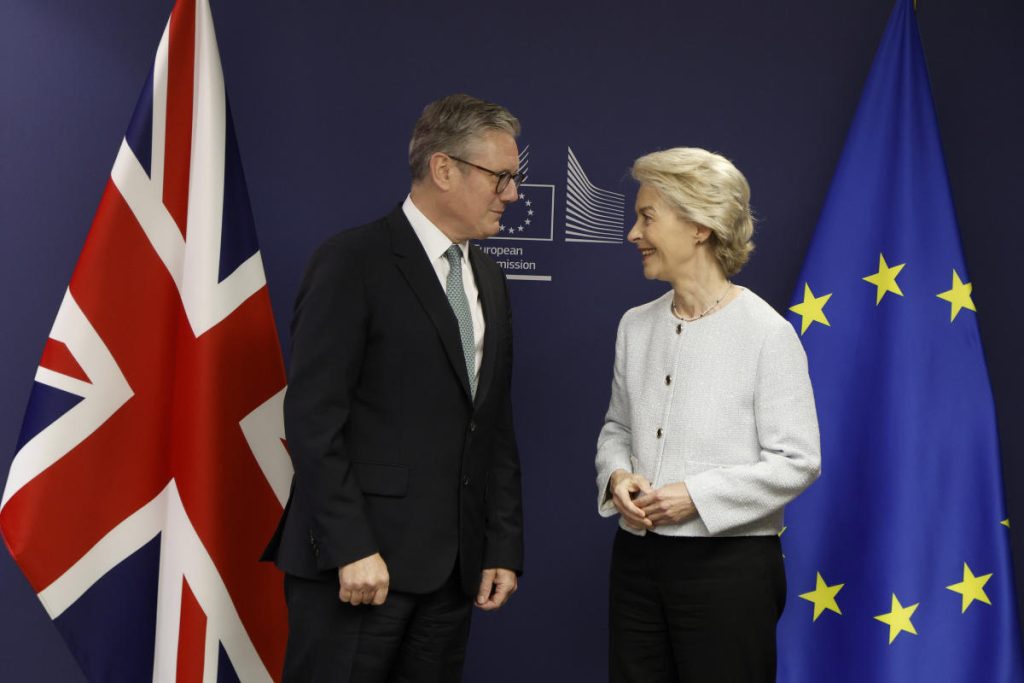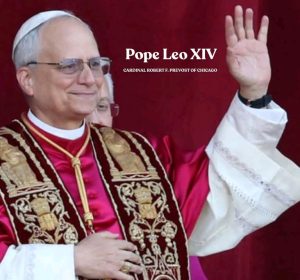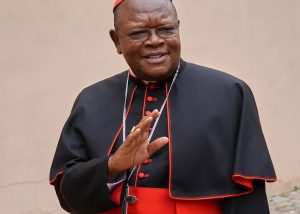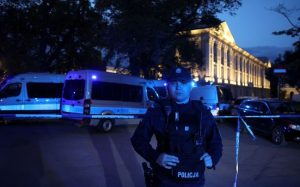A New Era: PM’s Visit to Brussels Signals Desire for UK-EU Cooperation
3 min read
Prime Minister Sir Keir Starmer has embarked on his inaugural visit to Brussels since assuming office, emphasizing the need to rebuild relationships and trust with the European Union following the tumultuous Brexit negotiations.
Despite the typically dreary weather, the significance of the visit was palpable. Union flags were prominently displayed alongside EU flags at press podiums, and the red carpet at the European Parliament was meticulously prepared for his arrival. Ursula von der Leyen, the influential President of the European Commission, warmly welcomed him, signaling an eagerness for renewed dialogue.
Starmer arrived with a comprehensive agenda, seeking closer collaboration on a range of issues, including defense and security—particularly energy security—as well as climate change, irregular migration, and economic growth. He framed these discussions as essential for making Brexit work in the UK’s favor, insisting that the British public yearns for what he described as “sensible leadership” in EU relations.
While his European counterparts acknowledged his proposals, their enthusiasm appeared somewhat muted. The EU still harbors regrets about the UK’s departure, reflecting on the considerable time and political effort expended during the Brexit negotiations. There is a clear reluctance among EU leaders to engage in prolonged discussions that may lead to unproductive outcomes.
Enhancing cooperation in security and defense is seen as the most straightforward avenue for mending ties. Since Russia’s invasion of Ukraine, relations between the UK and the EU have improved, with both sides swiftly working together to impose sanctions on Moscow and bolster Ukraine’s defenses. The UK has taken a leading role in the latter efforts.
However, one area of contention remains whether British businesses should participate in the EU’s rearmament initiatives. On the migration front, there is mutual agreement on the need to dismantle people-smuggling networks and address irregular migration. Yet, the method of achieving these goals is where complexities arise. Recent calls from French and German interior ministers to formalize agreements with the UK highlight the need for more legal pathways for asylum seekers heading to the UK, as they report that a significant portion of irregular migrants aim to settle there.
Starmer has also sought insights from Italy on how to curb migration from Africa and the Middle East through economic agreements. However, such deals have drawn criticism from human rights organizations, which argue they often lead to the mistreatment of migrants.
One of the most contentious points on Starmer’s agenda is his ambition to reduce what the EU considers “unnecessary trade barriers.” The EU has responded that these barriers stem from the UK’s choice to exit the single market and customs union—issues Starmer reiterated are not subject to renegotiation. This leaves the EU with limited options to accommodate the UK’s requests.
Trade enhancements will likely require concessions from both sides. The UK government is keen to facilitate smoother exports of food and beverages and improve access for British artists, including musicians, to the EU market. Meanwhile, some EU member states are pushing for increased fishing rights in UK waters, while the bloc as a whole has proposed a youth mobility scheme that would allow young Europeans to study and work in the UK for a limited period, with reciprocal arrangements for British youth in the EU.
However, Starmer, who has committed to lowering immigration levels, reaffirmed that “free movement is a red line.” He opted to sidestep some of the more contentious issues during press interactions, focusing instead on the broader goals of collaboration. He emphasized the importance of “what we can do, not what we can’t do,” stressing deliverables over mere commentary.
The European Commission has made it clear that it expects the UK to fully comply with existing agreements, such as the Withdrawal Agreement, the Windsor Framework concerning Northern Ireland, and the Trade and Cooperation Agreement, before entering into any new discussions. This summer, the Commission cited non-compliance in several areas, adding further complexity to the situation.
As behind-the-scenes talks are set to begin soon, the first of what will be regular EU-UK summits is scheduled for the new year. The sentiment that negotiations could drag on indefinitely—a joke often exchanged among Brussels-based journalists during the Brexit process—seems increasingly likely to become a reality. Starmer’s visit represents a pivotal moment in redefining UK-EU relations, but significant hurdles remain as both sides navigate the intricacies of their new partnership.








